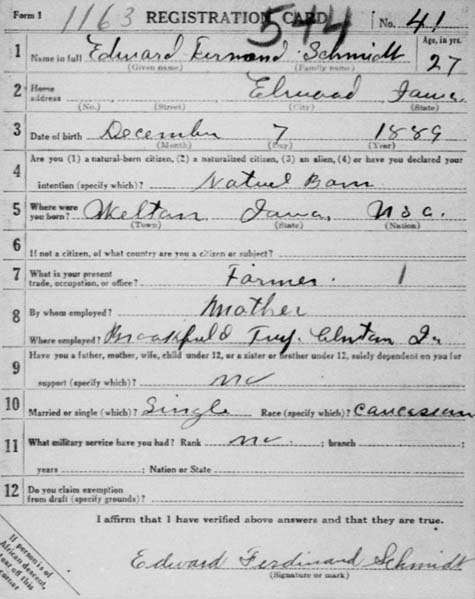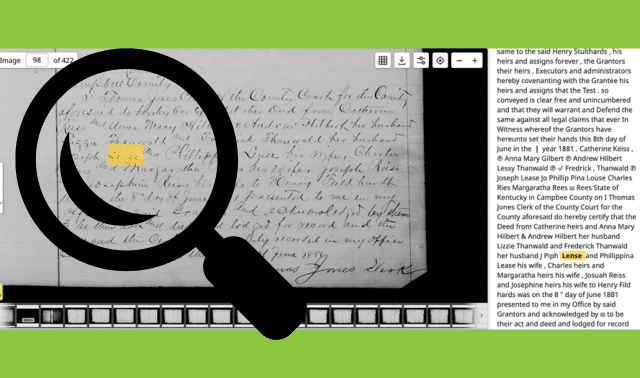Sign up for the Family Tree Newsletter! Plus, you’ll receive our 10 Essential Genealogy Research Forms PDF as a special thank you.
Get Your Free Genealogy Forms
"*" indicates required fields

Military records—such as service records, pensions, and draft registration cards (see above)—can provide valuable information about your ancestors and their military service. Fold3 is the undisputed US military records champion, but what’s the key to finding military records on the free FamilySearch.org?
The free database boasts more than 160 military records collections. Author of the Unofficial Guide to FamilySearch.org Dana McCullough shares three strategies for searching for military records on FamilySearch.org.
Learn military history
The United States has fought in many military incursions throughout the years. By learning about them and when they took place, you can identify which conflict your ancestor may have served in. See the table below for a list of major US military conflicts. Note that your ancestors may have draft records available even if they weren’t deployed. Your ancestor may also have served during one of these conflicts without having seen any actual combat.
| Revolutionary War | 1775–1783 |
| War of 1812 | 1812–1815 |
| Mexican-American War | 1846–1848 |
| Civil War | 1861–1865 |
| Spanish American War | 1898 |
| Philippine Insurrection | 1899–1902 |
| World War I | 1917–1918 |
| World War II | 1941–1945 |
| Korean War | 1950–1953 |
| Vietnam War | 1959–1973 |
Include residence in search criteria
Including where your ancestor lived will help you determine whether the John Smith listed is your John Smith. In addition, many military records were recorded or arranged by state, and most military records include the soldier’s place of residence.
You might also consider browsing collections by location. FamilySearch.org has several locations specific to a state or territory, such as “Delaware Civil War Service Records of Union Soldiers.“
Add a family relationship
Particularly when searching for pensions records, try adding a family relationship. Why? Pensions included family members such as the soldier’s widow or children. Other military records may also include family members’ name, since soldiers often had to provide information about their next of kin or a contact person back home.




